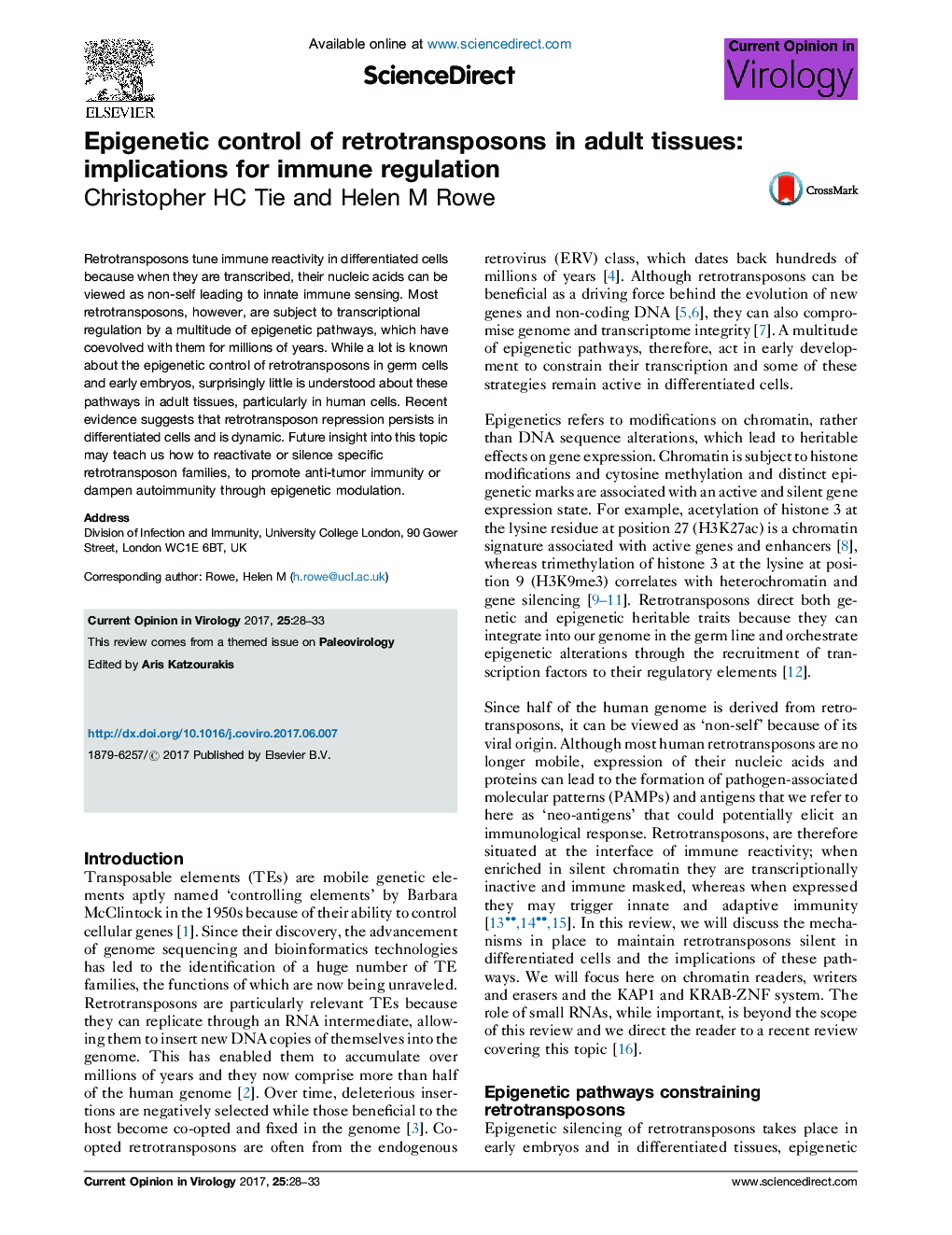| Article ID | Journal | Published Year | Pages | File Type |
|---|---|---|---|---|
| 5546196 | Current Opinion in Virology | 2017 | 6 Pages |
Abstract
Retrotransposons tune immune reactivity in differentiated cells because when they are transcribed, their nucleic acids can be viewed as non-self leading to innate immune sensing. Most retrotransposons, however, are subject to transcriptional regulation by a multitude of epigenetic pathways, which have coevolved with them for millions of years. While a lot is known about the epigenetic control of retrotransposons in germ cells and early embryos, surprisingly little is understood about these pathways in adult tissues, particularly in human cells. Recent evidence suggests that retrotransposon repression persists in differentiated cells and is dynamic. Future insight into this topic may teach us how to reactivate or silence specific retrotransposon families, to promote anti-tumor immunity or dampen autoimmunity through epigenetic modulation.
Related Topics
Life Sciences
Immunology and Microbiology
Virology
Authors
Christopher HC Tie, Helen M Rowe,
